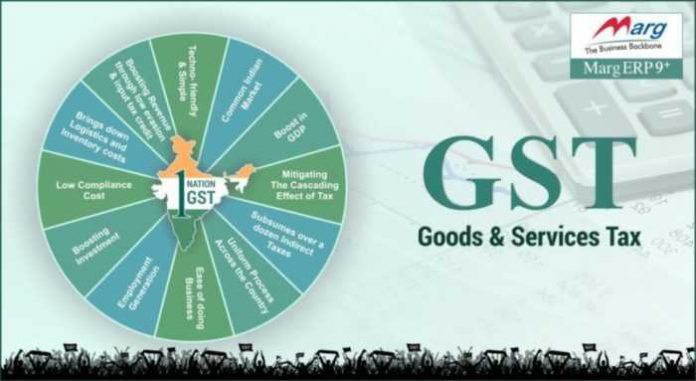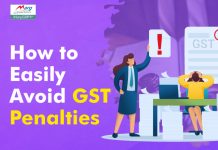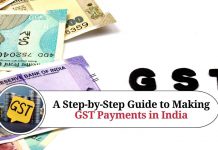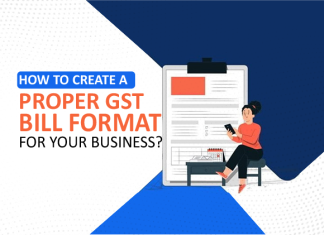On August 3rd, 2016 Rajya Sabha unanimously passed The Constitutional Amendment Bill for Goods and Services Tax (GST) and paves the way of largest tax reform in India after Independence. The GST Bill has been approved by the President and it will come in force from 1st April, 2017. Intended to create a common Indian market and mitigating the cascading effect* of tax on goods and services, the GST is estimated to boost GDP by 1.5%-2.0%. Subsuming over a dozen central and state indirect taxes and creating uniform process across India it will significantly contribute to the ‘Ease of Doing Business’.
The GST is a destination based tax on consumption of goods and services which mean the tax would accrue to the taxing authority which has jurisdiction over the place of consumption which is also termed as place of supply. Therefore, imports would be subject to GST, while exports would be zero-rated. It is proposed to be levied at all stages right from manufacture up to final consumption with credit of taxes paid at previous stages available as setoff. Only value addition will be taxed and taxable event is Supply as against the existing taxable events of sale, manufacture or provision of service.
* cascading tax is a turnover tax that is applied at every stage in the supply chain, without any deduction for the tax paid at earlier stages.
Taxes to be subsumed under GST:
| Taxes currently levied and collected by the Centre | State taxes |
|---|---|
| Central Excise duty | State VAT |
| Duties of Excise (Medicinal and Toilet Preparations) | Central Sales Tax |
| Additional Duties of Excise (Goods of Special Importance) | Luxury Tax |
| Additional Duties of Excise (Textiles and Textile Products) | Entry Tax |
| Additional Duties of Customs (commonly known as CVD) | Entertainment and Amusement Tax (except when levied by the local bodies) |
| Special Additional Duty of Customs (SAD) | Taxes on advertisements |
| Service Tax | Taxes on lotteries, betting and gambling |
| Central Surcharges and Cesses so far as they relate to supply of goods and services | State Surcharges and Cesses so far as they relate to supply of goods and services |
| Purchase Tax |
Commodities proposed to be kept outside the purview of GST: Alcohol for human consumption, Petroleum Products viz. petroleum crude, motor spirit (petrol), high speed diesel, natural gas and aviation turbine fuel& Electricity.
Dual GST: India is a federal republic. In the constitution of India there is distinct division of powers between the Center and the States. Both have been assigned the powers to raise resources through appropriate legislation. Therefore A dual GST is Constitutional requirement of fiscal federalism wherein Centre and States will be simultaneously levying it on a common tax base.
The components of Dual GST:
- Central GST (CGST): To be levied by the Centre on intra-State supply of goods and / or services.
- State GST (SGST): To be levied by the States.
- Integrated GST (IGST): It will be levied and administered by Centre on every inter-state supply of goods and services.
On intra-state transactions CGST+SGST will be applicable and on Interstate transactions, IGST will be applicable.
Liability to pay GST: The threshold of exemption under the GST regime is Rs.20 lakhs (Rs. 10 lakhs for NE States). The CGST / SGST is payable on all intra-State supply of goods and/or services and IGST is payable on all interstate supply of goods and/or services. The CGST /SGST and IGST are payable at the rates specified in the Schedules to the respective Acts.
GST Council : A GST Council would be constituted comprising the Union Finance Minister (who will be the Chairman of the Council), the Minister of State (Revenue) and the State Finance/Taxation Ministers to make recommendations to the Union and the States on the various subjects related to GST. The Council would ensure harmonization on different aspects of GST between the Centre and the States as well as among States.
GSTN: GSTN stands for Goods and Service Tax Network (GSTN). It has been set up to provide a shared IT infrastructure and services to Central and State Governments, tax payers and other stakeholders for implementation of GST.










































Hey, I think your website might be having browser compatibility issues.
When I look at your blog site in Chrome, it
looks fine but when opening in Internet Explorer, it has some overlapping.
I just wanted to give you a quick heads up! Other then that, awesome blog!